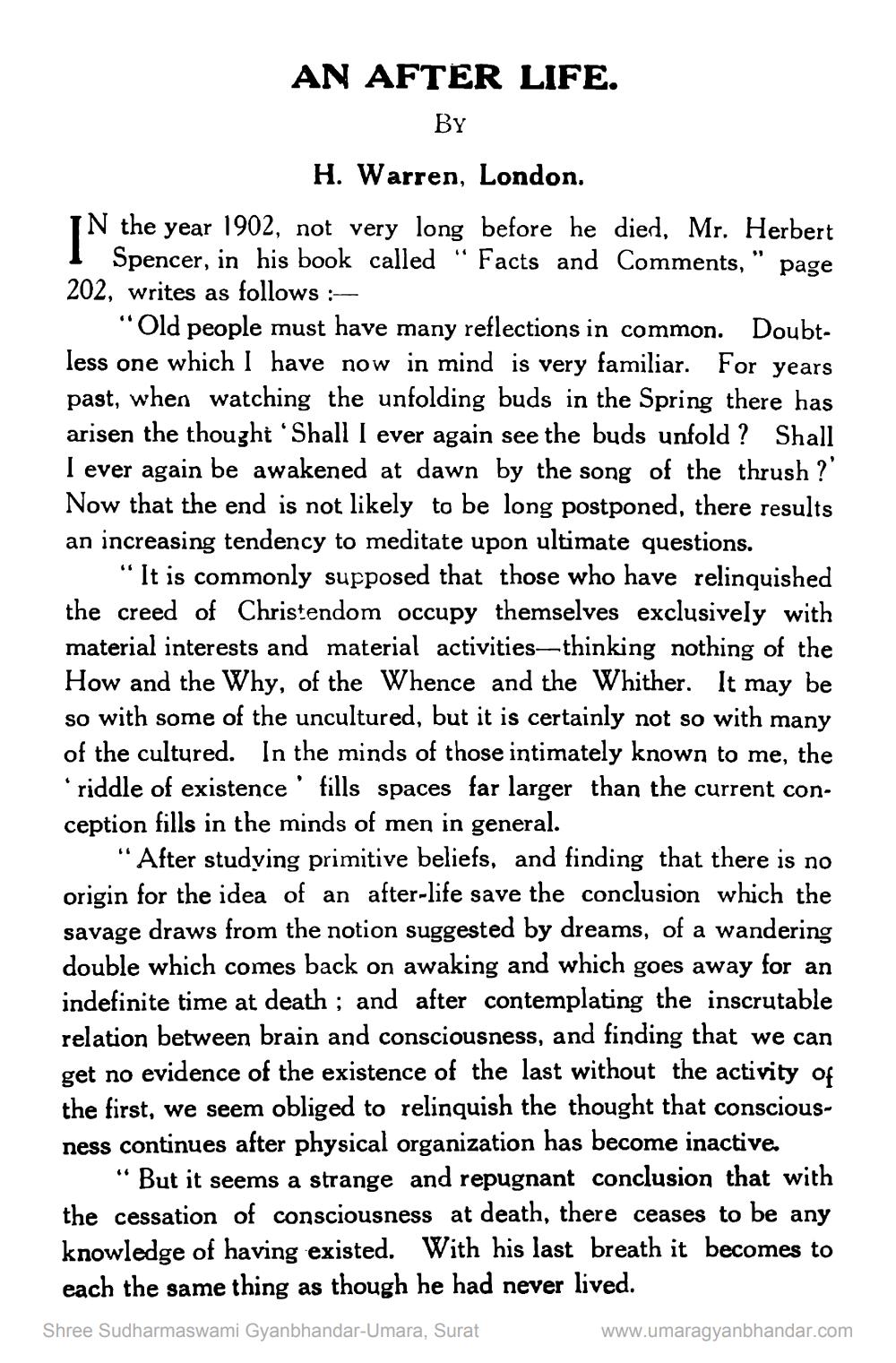________________
AN AFTER LIFE.
BY
H. Warren, London. IN the year 1902, not very long before he died, Mr. Herbert 1 Spencer, in his book called “Facts and Comments," page 202, writes as follows :
"Old people must have many reflections in common. Doubtless one which I have now in mind is very familiar. For years past, when watching the unfolding buds in the Spring there has arisen the thought 'Shall I ever again see the buds unfold ? Shall I ever again be awakened at dawn by the song of the thrush ?' Now that the end is not likely to be long postponed, there results an increasing tendency to meditate upon ultimate questions.
"It is commonly supposed that those who have relinquished the creed of Christendom occupy themselves exclusively with material interests and material activities—thinking nothing of the How and the Why, of the Whence and the Whither. It may be so with some of the uncultured, but it is certainly not so with many of the cultured. In the minds of those intimately known to me, the * riddle of existence' fills spaces far larger than the current conception fills in the minds of men in general.
"After studying primitive beliefs, and finding that there is no origin for the idea of an after-life save the conclusion which the savage draws from the notion suggested by dreams, of a wandering double which comes back on awaking and which goes away for an indefinite time at death ; and after contemplating the inscrutable relation between brain and consciousness, and finding that we can get no evidence of the existence of the last without the activity of the first, we seem obliged to relinquish the thought that consciousness continues after physical organization has become inactive.
“But it seems a strange and repugnant conclusion that with the cessation of consciousness at death, there ceases to be any knowledge of having existed. With his last breath it becomes to
each the same thing as though he had never lived. Shree Sudharmaswami Gyanbhandar-Umara, Surat
www.umaragyanbhandar.com




